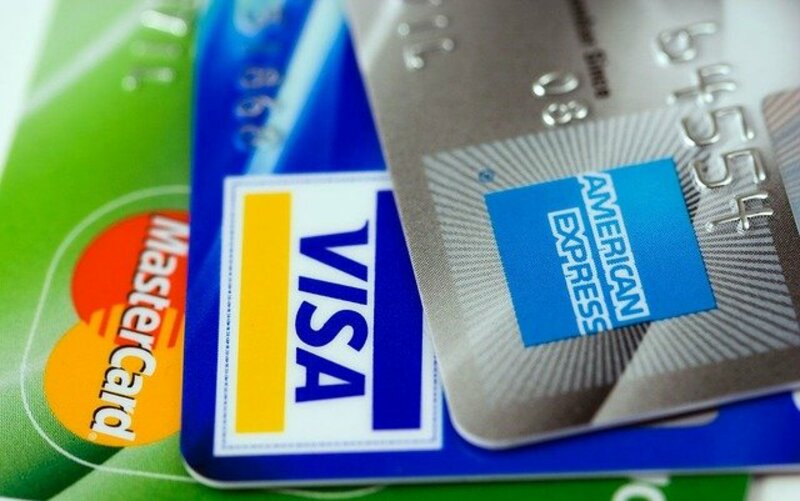
During these trying times in the economy, debt continues to climb for many Americans. That's especially in terms of credit card debt as Americans look to make ends meet. In fact, America's total credit card balance hit $986 billion in the first quarter of 2023, according to the Federal Reserve Bank of New York. That's a number that has yet to change since the fourth quarter of 2022, when Americans hit a new record since tracking began in 1999.
It can be incredibly demoralizing to continuously see your debt increase, costs increase, and your salary remain the same. So what on earth can you do about it?
The Zero Based Budget may be your answer. But what is it exactly?
The Zero Based Budget
The Zero Based Budget is pretty simple to explain at first. It's simply taking all your income, then subtracting all your expenses until it comes down to zero. So if you're making around $5,000 a month, then your spend should also add up to $3,000. It's simply assigning a job to every single dollar that you're making, rather than spending without thinking.
Now you might think this means you're going to end up with nothing in savings at the end of the day. Yet that's not true. If you stick to a zero based budget, it means that perhaps whatever you have leftover after all the expenses goes straight towards your debt or savings. Of course, if you're looking to pay off debt fast, it may mean you have to make some serious alterations to your budget. But once you're set up with a zero based budget and pay down debt, it will feel like you got a raise. Suddenly, you'll have all this cash leftover at the end of each month that can be put straight into your savings account. Soon, you'll see your debt fall lower and lower, and then your savings towards financial goals rise higher and higher. You'll finally be allowing your money to work for you. After all, you work hard for it in the first place!
So how do you get started on a Zero Based Budget? Let's get into that next.
Creating a Zero Based Budget
If you haven't been making a budget to begin with, which about 23% of Americans don't according to NerdWallet, then this might be the biggest task. You'll have to go back into your bank statements and grab the last three months. After all, if you're going to start budgeting, you need to understand your spending.
You'll then need to go line by line and see what you earn, and what you spend on. There are a few ways to do this, but honestly I would certainly recommend a budgeting application to do this. This way, you won't forget any expenses that perhaps come up later or earlier in the year, and the math is done for you!
Just remember to count all your income. Not just your pay check, but any side hustles, grants, or anything else you receive each month.
Then let the application take you through all your spending for each month. This should include your essentials like utilities, food, shelter and transportation. It should also include insurance, debt payments, and other monthly essential items. Further, write down monthly savings you put aside, along with any donations you make. Then, look at a calendar. Are there any special events coming up? How about holidays? Make sure that's in the budget too. Finally, consider things you do for fun. How often are you going to the movies, eating out and all that? This can be added to your budget as well, perhaps as miscellaneous, helping you stay within a reasonable amount for each month so that your total income comes down to zero.
So you have your budget, now what?
You didn't think you were done, did you?
This budget you made, unfortunately, isn't working. If it were, you wouldn't continue to have debt and savings problems. So now, it's time to get cutting.
Yet because you've made a budget and gone through your spending habits, this should be much easier than deciding to cut random things here and there. Instead, you can first look at your income, and cut out all those essentials you lined up. You'll also want to of course continue putting money aside for minimum debt payments, as well as your savings.
That leaves your fun stuff that needs to be cut. If you're seriously in debt, honestly that fun stuff is going out the window. No more eating out. No more travel. If you're drowning in debt, you're only making it worse putting vacations on your credit card. So get down to zero, even if it means putting everything aside.
This may also mean taking a difficult look at what's costing you money that shouldn't. Perhaps you bought a fancy car you should be selling. Perhaps you may even need to downsize your home.
I know that sounds harsh, but if you're serious about getting out of debt, it's time to get serious with your budget. So cutting out these items in the short term of perhaps two years could mean you're debt free afterwards! And luckily you'll now have an application that can guide you through this.
And here's the best part. Once you've paid off your debts in a period of time that works with your budget, you don't stop there. You instead put that towards your emergency fund, your retirement, your life. That way, should debt ever come your way again (and it will) you'll be well prepared, thanks to the Zero Based Budget.
On the date of publication, Amy Legate-Wolfe did not have (either directly or indirectly) positions in any of the securities mentioned in this article. All information and data in this article is solely for informational purposes. For more information please view the Barchart Disclosure Policy here.






